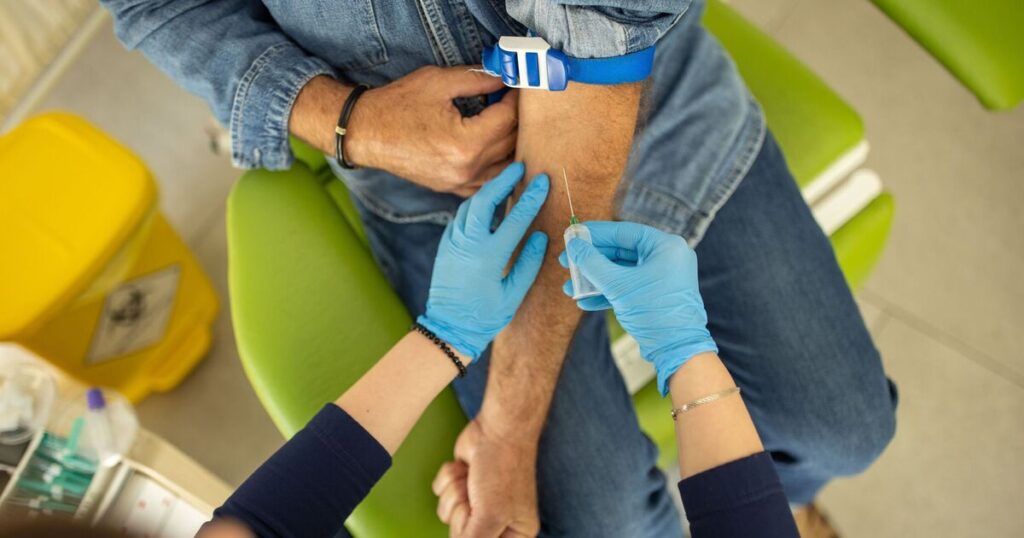
The NHS has cautioned that experiencing “pins and needles” may indicate a significant deficiency. Vitamin B12 or B9 (folate) deficiency anaemia arises when the body lacks these essential vitamins.
If left untreated, some complications may become irreversible calling it “irreversible”. A deficiency in these vitamins leads to the production of unusually large red blood cells that do not function properly. The NHS explains that red blood cells transport oxygen throughout the body using haemoglobin.
“Anaemia is the general term for having either fewer red blood cells than normal or having an abnormally low amount of haemoglobin in each red blood cell,” it explains.
If left untreated, some complications may become permanant. It warns: “Some problems caused by the condition can be irreversible.”
A deficiency in these vitamins leads to the production of unusually large red blood cells that do not function properly. The NHS explains that red blood cells transport oxygen throughout the body using haemoglobin.
Anaemia is a broad term referring to either a lower-than-normal red blood cell count or an insufficient amount of haemoglobin in each red blood cell.
What are the symptoms of vitamin B12 or folate deficiency?
Vitamin B12 and folate are essential for daily function. However, a deficiency in these vitamins may lead to symptoms such as tingling sensations (pins and needles), low energy, and fatigue.
Other signs and symptoms include:
- rapid breathing or shortness of breath
- headaches
- indigestion
- loss of appetite
- palpitations
- problems with your vision
- feeling weak or tired
- diarrhoea
- a sore or red tongue, sometimes with mouth ulcers
- problems with memory, understanding and judgment (cognitive changes)
- numbness
- muscle weakness
- psychological problems, which can range from mild depression or anxiety, to confusion and dementia
- problems with balance and coordination
- incontinence
Do I need to see a GP?
The NHS cautions: “Some of these problems can also happen if you have a deficiency in vitamin B12 or folate but do not have anaemia.” But if you’re worried, you may want to see a GP.
You need to make an appointment as soon as possible if you think you have a vitamin B12 or folate deficiency anaemia. “This is because although many of the symptoms improve with treatment, some problems caused by the condition can be irreversible”, the NHS warns.



















